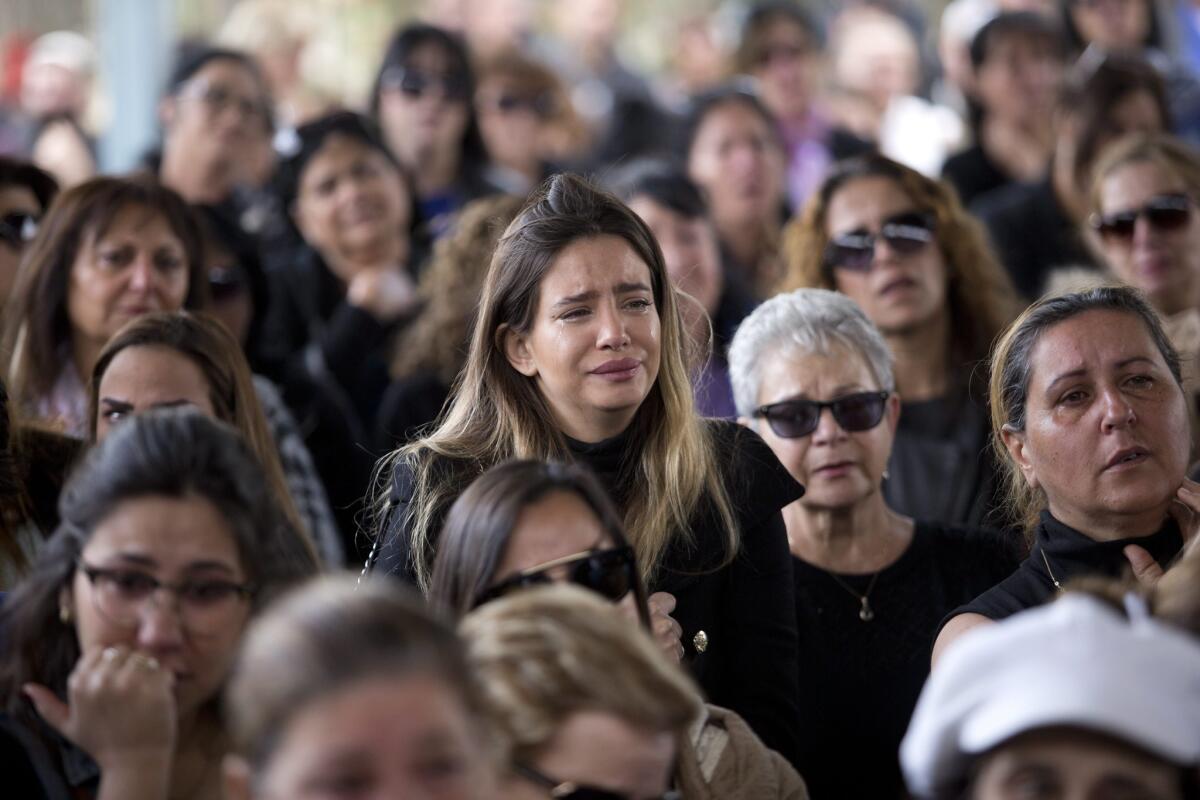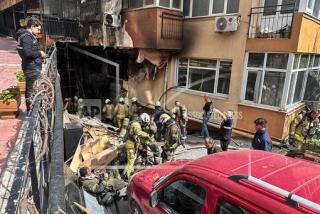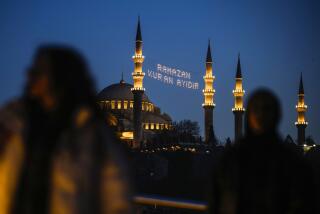On the Ground: ‘We believe that this is just the beginning’: Residents despair over Turkey’s deadly conflict

Friends and relatives of Simcha Damari mourn during her funeral in the southern city of Dimona, Israel, 21 March 2016. Damari was one of three Israelis killed in the recent suicide bomb attack in Istanbul.
The rumors ricocheting through Istanbul reached us on March 16, when a close Turkish friend urged us to leave the city for the weekend. The next day, my Turkish teacher, as well as the lifeguard at my gym, offered similar warnings. Three days later, at 9:30 a.m., the easygoing young man who delivers hefty plastic jugs of fresh water walked into my kitchen with a week’s supply. “Will there be trouble in the city today?” I asked him. “Yes,” he instantly replied. “There will be bombs. Stay home.”
Two hours later a suicide bomber killed four people and injured 36 others in a blast on Istiklal Street, Istanbul’s main shopping corridor. The Turkish government blamed a young Islamic State member for the attack.
My wife and I, after many years in New York City, moved to Istanbul in August 2014. For a year we savored the manifold pleasures of this magnificent, relatively affordable city — the ferry rides across the Bosphorus; the maze-like back streets of Kadikoy, packed with bakeries, spice shops, bookstores, cafes and atmospheric fish restaurants; the grandeur of the 16th century mosques designed by Mimar Sinan; and the excursions to the nearby islands of Heybeliada and Buyukada, where the principal mode of transport is the horse-drawn carriage.
As a result of all this turmoil, the mood in Istanbul has turned funereal.
During that exuberant first year, we did see things that made us queasy: We noticed that citizens were prosecuted for “insulting” President Recep Tayyip Erdogan; and we observed that peaceful protesters were often treated aggressively by police in full riot gear. “Everyone is afraid,” Nobel laureate Orhan Pamuk declared in December 2014. “Freedom of expression has fallen to a very low level.” Despite all this, some of our close Turkish friends felt the country was gradually, albeit precariously, inching in the right direction.
That progress was halted on July 20, 2015, when a suicide bomber struck a group of young Turkish leftists on their way to a humanitarian mission in the Syrian border town of Kobani. Thirty-two people were killed and more than 100 were wounded. Although Turkish officials blamed Islamic State, the Kurdistan Workers’ Party, or PKK, suspected government involvement and understood the incident as an attack on the Kurdish cause. After it retaliated by killing two police officers, a fragile two-and-a-half-year cease-fire between the government and the PKK collapsed, and a war resumed — one that resembles the ghastly conflicts that, in recent decades, have torn apart Sri Lanka, Peru and Colombia. (This war is mostly confined to the southeastern part of the country.)
As a result of all this turmoil, the mood in Istanbul has turned funereal. Tourists usually descend upon the city in March and April, but many have chosen to stay home or go elsewhere. Quite a few of the hundreds of bars, cafes and restaurants that surround Istiklal Street are deserted. The young manager of an elegant hotel in the city center told me that circumstances have forced him to drop his daily rate by 100 euros. Like many educated, secular Turks in their 20s and 30s, he doesn’t see a future in this country. He and his wife are trying to relocate to Amsterdam.
Shopkeepers, too, are feeling the strain. Forty percent of the shops in Istanbul’s leather-exporting district have closed this year, leaving 3,000 people jobless. “The dream is over here,” a leather industry spokesman told the English-language Hurriyet Daily News. A few days ago I went to Lale Plak, a famed record store on Istiklal Street that was founded in 1957 and that embodies Istanbul’s deep-rooted cosmopolitanism. I fell into conversation with a stylish Turkish musician in her 40s who had lived in Paris for many years but returned to Istanbul in 2012. I asked her if she had made the right decision by coming back to Turkey. “I’m not happy about it,” she replied. “I don’t like the situation.”
Many Turks express an acute sense of déjà vu: They feel trapped in the circularity of modern Turkish history. “I don’t expect things to change any time soon — violence breeds violence,” says a Turkish friend in her late 20s. Another Turkish friend, who owns a small shop, remarked to me last week: “We believe that this is just the beginning” — by which he means the onset of a downward spiral of violence and instability. Two recent blasts in the heart of the capital, Ankara, undertaken by a Kurdish radical group, have left the entire country anxious and fearful.
Some Istanbul activists who participated in the Gezi Park protests of 2013 are now reluctant to attend political demonstrations — they worry about terrorism. Many people here have reduced their use of public transportation. Each day, an interminable chorus of gloom rises from the lively op-ed pages of the Hurriyet Daily News. (Another English-language newspaper, Today’s Zaman, was just liquidated by the government; its online archive was reportedly destroyed.) Expats are edgy, and some have already purchased one-way plane tickets. “Turkey seems to be moving in just one direction,” sighed a British man who, after a satisfying couple of years in the downtown bohemian enclave of Cihangir, recently decided to make his home in London.
Two days after the bombing on Istiklal Street, I went to the site of the attack. Police cars flanked the locked gates of nearby foreign consulates, and the city’s most bustling shopping corridor imparted a ghostly atmosphere. A crowd of 50 people was tightly clustered around a makeshift shrine to the dead and wounded. There were flowers, photographs and hand-written signs, but what I mainly remember is the thick black pistol that protruded from the breast pocket of a plainclothes policeman who, on this radiant early spring afternoon, was grinning and chatting with his friends.
Scott Sherman, a contributing writer to the Nation, is the author of “Patience and Fortitude: Power, Real Estate, and the Fight to Save a Public Library.”
Follow the Opinion section on Twitter @latimesopinion and Facebook
More to Read
A cure for the common opinion
Get thought-provoking perspectives with our weekly newsletter.
You may occasionally receive promotional content from the Los Angeles Times.






